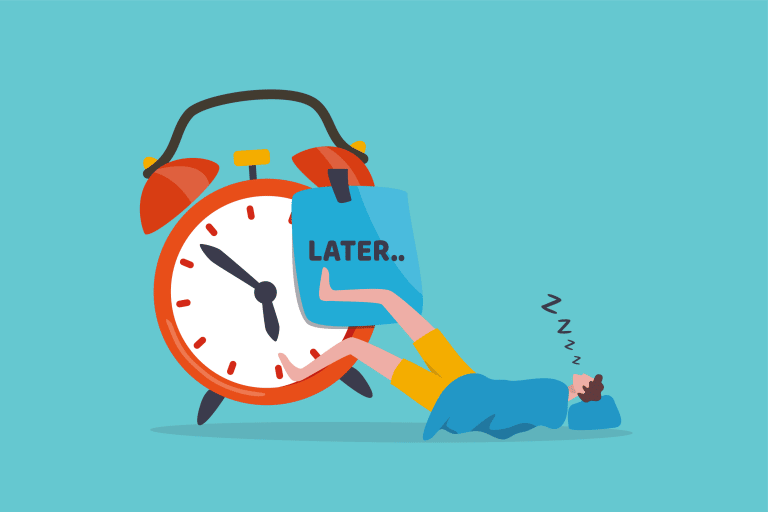The practice of needlessly delaying choices or actions is known as procrastination. For instance, procrastination occurs when someone, who had intended to complete an assignment earlier, waits until the very last minute, without good reason, to do it.
Procrastination is a widespread issue that affects 50% of college students and 20% of adults chronically. It is linked to a number of problems, including poorer academic achievement, worse financial and work circumstances, less emotional wellness, poorer mental and physical health, and a delay in seeking help for one’s problems.

Table of Contents
Procrastination symptoms and signs
Procrastination is typically accompanied by the following signs and symptoms:
- Waiting till the very last minute to begin before deadlines.
- Saying “I’ll do it later” all the time.
- Completing chores that you had planned to undertake days earlier.
- You know it’s necessary to start, but you can’t seem to move past neutral.
- Putting off accomplishing things needlessly, despite their importance.
- Putting off doing something you don’t enjoy.
- You make a promise to yourself that you’ll accomplish something, but you end up putting it off.
- Putting off beginning chores that don’t seem appealing.
- Even simple tasks that only involve sitting down and performing them take days to finish.
- Making excuses for not completing tasks on schedule.
- Putting off changing your work habits continuously.
- Delaying making choices.
- Having trouble starting, even though you despise yourself for it.
You are more likely to be a procrastinator and your procrastination is more likely to be severe the more of these indications and symptoms you exhibit, as well as the more regularly and seriously.
Sometimes procrastination is an underlying problem in and of itself, such as ADHD or depression. However, this does not imply that if you postpone, you inevitably have these disorders. There are numerous nuances to such diagnoses, which are often made by a professional, including the reasons why you procrastinate and any additional symptoms you may be exhibiting.
Read our other blogs on procrastination
Learn more about the human mind, discover yourself, and remain motivated with Evolve! If you liked our article, try the Evolve App to help you move on and focus on your growth. Evolve has a range of guided audios that help you proactively manage stress, reduce anxiety and make mindfulness light and joyful, so you can be balanced at any time! The Evolve app is now live globally on Android and Apple. Click here to try it for free!